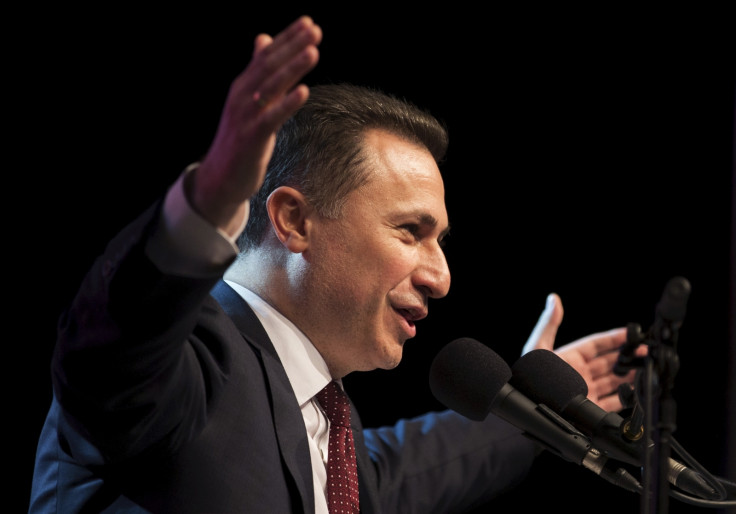Macedonia leaders meet in Strasbourg to discuss continued unrest

Macedonian rival leaders met in Strasbourg and spent 12 hours in talks as they attempted to resolve the nation's biggest political crisis since its 1991 independence.
According The Associated Press, embattled Prime Minister Nikola Gruevski and opposition leader Zoran Zaev met with several European Parliament and Commission members for the first round of talks. A second round of talks are scheduled for next week, the AP reported.
Richard Howitt, a European Parliament member, told the AP that Gruevski and Zaev demonstrated "a commitment for continuing the process." The two had not made any progress during talks in Skopje earlier this week.
On 17 May, the opposition took to the streets of Macedonia's capitol calling for Gruevski's resignation after recordings released allegedly showed ministers plotting to rig voting. Zaev, the leader of the centre-left Social Democratic Union of Macedonia (SDSM), had called on opposition protesters to remain camped out outside government headquarters "until Gruevski goes".
In response, Gruevski called on his pro-government supporters to flood the streets of Skopje in a counter-protest on 18 May. The counter-protest was comparable to the opposition demonstration and occurred about two kilometres from the opposition campsite.
The West has attempted to mediate talks between Gruevski, Zaev and two ethnic Albanian leaders, Ali Ahmeti and Menduh Thaci. As previously reported by IBTimes UK, a previous almost civil war in 2001 was put to rest after Western powers promised a path into the European Union and Nato membership.
However, on 20 May Albanian Prime Minister Edi Rama warned Macedonia that Albania would block Macedonia's Nato bid unless it worked on improving issues relating to the rights of the country's ethnic Albanian minority. Macedonia's entry to the EU has also been postponed over an ongoing argument with Greece over its name.
© Copyright IBTimes 2024. All rights reserved.






